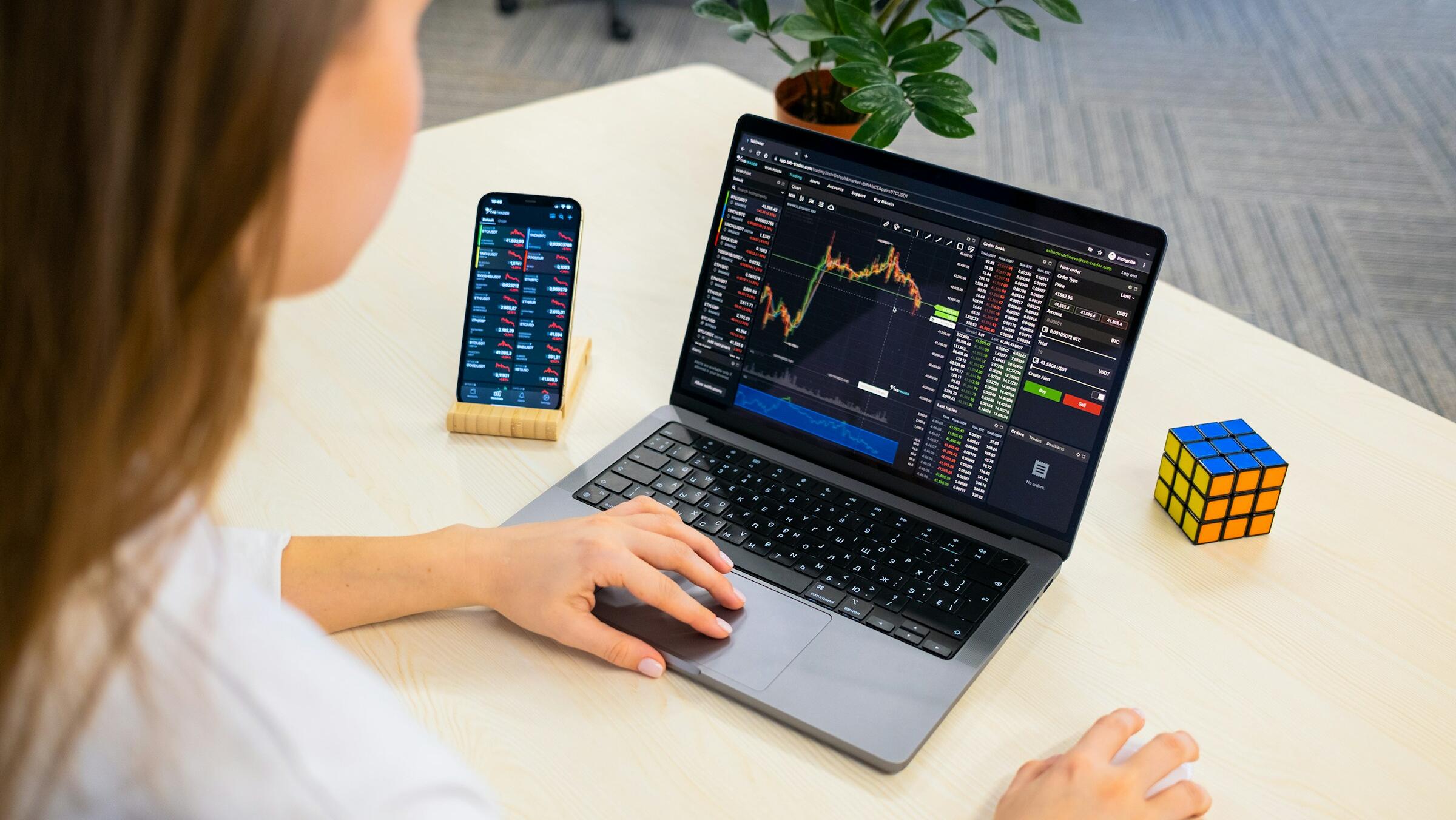All the top moves, shakes, and red-hot takes from Azzet's editorial team are right here in your weekly business wrap every Friday (5 September, 2025).
Billionaire investor Ray Dalio has warned the United States is sliding toward the same debt-fueled autocracy that consumed European democracies in the 1930s, with America's debt reaching US$37.3 trillion and interest payments now costing $879.9 billion annually.
The Bridgewater Associates founder pointed to Trump's 10% government stake in Intel as evidence of "strong autocratic leadership" that historically precedes democratic collapse.
European Central Bank President Christine Lagarde echoed concerns about Fed independence, warning that political control over U.S. monetary policy would pose "a very serious danger" to the global economy.
Trump escalated attacks by calling for Fed Governor Lisa Cook to step down over unconfirmed mortgage fraud allegations, with Cook responding she had "no intention of being bullied" into resignation.
International investors have begun shifting from U.S. Treasuries to gold, with bullion gaining 27% this year whilst Treasuries struggle to maintain their traditional safe-haven status.
Legal issues
The U.S. Court of Appeals delivered a significant blow to Trump's trade policy arsenal, ruling 7-4 that most of his tariffs were illegal and undercutting a cornerstone of his international economic strategy.
The court allowed tariffs to remain until 14 October, giving the administration breathing room to appeal to the Supreme Court, though Trump warned removal would "literally destroy the United States of America".
A Supreme Court ruling looms over the tariff challenge.
Trump's US$2 billion Harvard funding freeze was also ruled illegal by a federal court, whilst Orsted sued Trump over the halted offshore wind plan as energy companies push back against policy reversals.
U.S. Treasury yields rallied on prospects of tariff payback, with the 30-year yield topping 4.97% as bond traders worried about potential refunds of illegally collected tariff revenues.
Meanwhile, a judge heard arguments against terminating Fed Governor Lisa Cook, adding to ongoing tensions over central bank independence as the Trump administration pushes for more dovish appointments.
Across the Atlantic, ASIC expanded litigation related to superannuation fund collapses, whilst closer to home, a judge ruled National Guard deployment as illegal, demonstrating that judicial oversight remains active across multiple jurisdictions.
Records and recoveries
Gold touched fresh record highs at US$3,508.79 per ounce, logging a six-day winning streak driven by safe haven flows and growing expectations of a September Fed rate cut.
The precious metal's rally came despite a modest dollar rebound, with CME Group's FedWatch Tool showing 89.7% probability of a 25 basis-point cut at the Fed's 17 September meeting.
Australian economic data provided a welcome surprise, with GDP growth beating forecasts in the June quarter at 1.8% year-on-year, outpacing expectations of 1.6% and marking the strongest pace in nearly two years.
Australian household spending climbed 0.5% in July, marking the third consecutive month of growth and reaching 5.1% annual growth - the highest since November 2023.
However, the RBA hinted at fewer cuts as consumer spending rises, with Governor Michele Bullock warning that if consumption continues strengthening, "there may not be many interest rate declines left to come".
Across the Pacific, U.S. job openings sank to 10-month lows in July at 7.18 million, falling below the number of unemployed workers for the first time in over four years.
Federal Reserve Governor Christopher Waller responded by supporting a September rate cut, noting "when the labour market turns bad, it turns bad fast".
Housing values bloomed heading into spring, according to CoreLogic data, whilst market volatility increased during the reporting season as the ASX profit season delivered wild price swings that kept brokers occupied.
Reporting season turmoil masked early signs of recovery, with institutional investors appearing to over-react to ordinary results, particularly punishing stocks with toppy valuations, including CSL, which experienced its single biggest one-day drop and saw $22 billion wiped off its value.
Tech gets antitrust relief
Google shareholders received an early Christmas present as an antitrust ruling sent shares to record highs following a federal judge's decision that the tech giant could keep Chrome while banning exclusive search contracts.
District Judge Amit Mehta stopped short of forcing divestiture of Chrome or Android, disappointing the Department of Justice but delighting investors who drove Alphabet shares from US$212 to US$229.74.
The ruling represents a significant victory for Google, which faced potential breakup of its core assets, though a separate ad-tech antitrust case still looms, with analysts warning it "presents a higher probability of a structural breakup".
Elsewhere in tech, Meta rushed AI safety fixes amid Senate investigation, whilst New Mexico and the Pentagon invested US$435 million into quantum technology development.
Geopolitical pressure keg
Russia's war economy faced mounting strain as economic resources evaporated, with the budget deficit reaching 4.88 trillion roubles (US$61.1 billion) through July whilst GDP expanded just 1.1% over seven months.
Government spending surged 20.8% to sustain military operations, though economists suggest Russia's appetite for a peace deal now reflects brutal economic realities rather than philosophical resolve.
Russia vowed to pursue Ukraine goals by force if no ceasefire emerges, whilst Trump planned talks with Ukraine in the coming days.
The geopolitical theatre continued with Putin and Modi joining Xi at the SCO summit amid trade tensions, whilst Zelenskyy reported Russia building up troops on the Ukraine front.
Meanwhile, Syria dusted off its oil sector to revitalise the economy as the region seeks stability through energy exports.
Germany mulled shifting funds to bolster its defence industry, with Economy Minister Katherina Reiche considering reallocating state financing to give the sector planning security.
The move follows NATO's formal commitment to spending 5% of GDP on defence by 2035, though Germany rejected EU Chief's Ukraine troop comments, with Defence Minister Boris Pistorius calling Ursula von der Leyen's discussion of multinational troop deployment "fundamentally wrong" before peace negotiations.
A devastating Afghanistan earthquake killed at least 800 and injured 3,000, adding humanitarian pressures to an already strained region.
Copper markets reflected complexity beyond simple supply-demand models, with LME cash prices hitting US$9,805 per tonne as the dollar weakened.
Argentina's mining renaissance gained momentum as Glencore filed US$13.5 billion applications for two massive copper projects under the country's new Large Investment Incentive Regime (RIGI), with El Pachón receiving $9.5 billion and Agua Rica $4.0 billion.
The timing reflected Argentina's RIGI offering what mining companies have long sought: 30-year tax stability guarantees, constitutional protection against policy reversals, and corporate tax drops from 35% to 25%.
BHP estimates data centre copper consumption will grow six-fold by 2050, from 500,000 tonnes annually today to 3 million tonnes, as AI requires 10 times the computing resources of regular cloud applications.
Corporate manoeuvres
Australian mining software company RPMGlobal soared to record highs after Caterpillar sprung a A$1.1 billion takeover bid at $5.00 per share, representing a 32.6% premium and valuing the company at 14.6 times software annual recurring revenue.
The shares jumped 22.94% as investors welcomed the strategic interest from the heavy machinery giant.
Star Entertainment's future remained in doubt as losses continued, whilst Collins Foods confirmed forecasts as KFC sales grew, demonstrating the divergent fortunes across consumer-facing businesses.
Policy shifts impacted major corporations: GM halted EV expansion following Trump policy changes, whilst Porsche faced dropping from the blue-chip DAX index as tariffs hit European automakers.
International corporate drama featured Kraft Heinz spilling beans on an unsuccessful merger attempt, whilst the KitKat maker fired its boss after workplace chatter revealed an affair, proving that executive indiscretions remain hazardous to corporate careers.
Earnings snapshots
The reporting season delivered mixed results across sectors.
Rosneft blamed OPEC+ for its first-half net income plunge, whilst cloud growth drove Alibaba past profit forecasts.
BYD's profits dropped during China's ongoing price wars, and EV maker Nio missed estimates as deliveries slowed.
The earnings parade continued with NAB admitting underpaying staff as it posted mixed Q3 results, GPT returning to the black as write-downs dropped away, and Woodside highlighting dividends as profits declined.
U.S. retail delivered mixed signals: Macy's soared after earnings beat and raised guidance, whilst American Eagle Outfitters popped 24.7% post-earnings.
However, Figma tanked 14% after its first report since IPO, and Salesforce beat estimates but fell 5.6% on outlook concerns.
Broadcom shares lifted 3.9% on AI revenue growth.
Trade tensions continued impacting corporates, with Lululemon predicting a US$240 million tariff hit causing shares to fall.
Ampol slipped into the red on one-offs and inventory losses whilst China's steel exports continued hurting BlueScope's margins, proving that even domestic miners aren't immune to Beijing's industrial strategy.
Seek's bottom line improved despite earnings slipping, Transurban felt pressure from revenue drops and finance costs, whilst Brambles hit record highs on full-year results and Goodman stayed profitable with data centre focus.
Qantas paid A$90 million for illegally outsourcing 1,820 ground handling jobs during COVID, with CEO Vanessa Hudson apologising to affected workers and the Transport Workers Union receiving A$50 million of the penalty.
Shifting policy sands
And Australian housing affordability neared record lows, while Labor rethought its super tax plan amid mounting backlash from industry groups and voters.
The competition regulator waved red flags over a Western Australia insurance deal, highlighting ongoing scrutiny of market concentration across sectors.
A pension giant warned against using superannuation as a piggybank, highlighting ongoing policy debates over retirement savings access.



